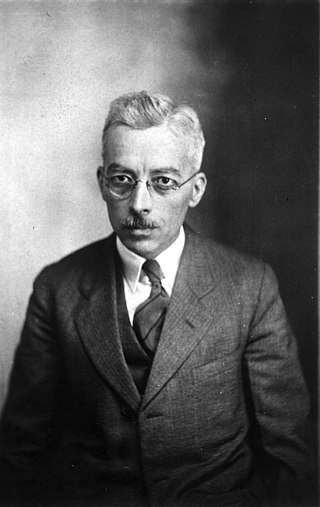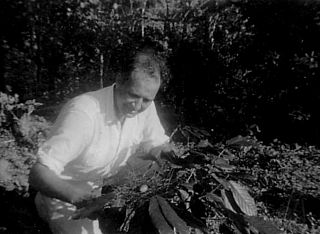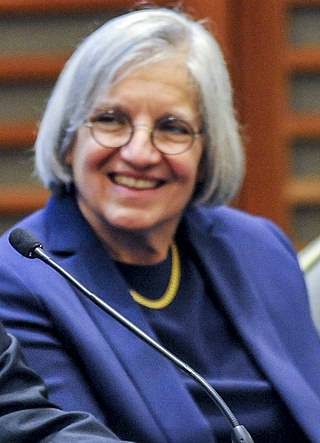Related Research Articles

Carlos Juan Finlay was a Cuban epidemiologist recognized as a pioneer in the research of yellow fever, determining that it was transmitted through mosquitoes Aedes aegypti.

Rolla Eugene Dyer was an American physician born in Delaware County, Ohio. Dyer received his B.A. in 1907 from Kenyon College in Gambier, Ohio, and his M.D. in 1914 from the University of Texas. He joined the U.S. Public Health Service in 1916.

The Walter Reed Medal may refer to the Congressional Gold Medal awarded to Major Walter Reed in 1929, or a medal currently awarded by the American Society of Tropical Medicine and Hygiene.

Thomas Huckle Weller was an American virologist. He, John Franklin Enders and Frederick Chapman Robbins were awarded a Nobel Prize in Physiology or Medicine in 1954 for showing how to cultivate poliomyelitis viruses in a test tube, using a combination of human embryonic skin and muscle tissue.

Frederick Lowe Soper was an American epidemiologist.

Wilbur George Downs, was a naturalist, virologist and clinical professor of epidemiology and public health at the Yale School of Medicine and the Yale School of Public Health.
William Bosworth Castle was an American physician and physiologist who transformed hematology from a "descriptive art to a dynamic interdisciplinary science."
The American Society of Tropical Medicine and Hygiene (ASTMH) is an Arlington, Virginia-based non-profit organization of scientists, clinicians, students and program professionals whose longstanding mission is to promote global health through the prevention and control of infectious and other diseases that disproportionately afflict the global poor. ASTMH members work in areas of research, health care and education that encompass laboratory science, international field studies, clinical care and country-wide programs of disease control. The current organization was formed in 1951 with the amalgamation of the American Society of Tropical Medicine, founded in 1903, and the National Malaria Society, founded in 1941.
George B. Craig, Jr. was an American biologist and entomologist, the Clark Professor of Biology at the University of Notre Dame, a member of the National Academy of Sciences and a recipient of the National Institutes of Health Merit Award.

Lewis Wendell Hackett was an American physician who worked in Italy, Albania and South America to combat malaria.
Christopher Mores is an American (US) arbovirologist, trained in infectious disease epidemiology. He is a professor in the Department of Global Health at the Milken Institute School of Public Health, the program director for the Global Health Epidemiology and Disease Control MPH program, and is director of a high-containment research laboratory at the George Washington University in Washington, DC.

Robert Ellis Shope was an American virologist, epidemiologist and public health expert, particularly known for his work on arthropod-borne viruses and emerging infectious diseases. He discovered more novel viruses than any person previously, including members of the Arenavirus, Hantavirus, Lyssavirus and Orbivirus genera of RNA viruses. He researched significant human diseases, including dengue, Lassa fever, Rift Valley fever, yellow fever, viral hemorrhagic fevers and Lyme disease. He had an encyclopedic knowledge of viruses, and curated a global reference collection of over 5,000 viral strains. He was the lead author of a groundbreaking report on the threat posed by emerging infectious diseases, and also advised on climate change and bioterrorism.
Aedes vittatus is a species of mosquito that was first described in 1861 as Culex vittatus from specimens collected on Corsica. In 2000, the species was transferred to the newly erected subgenus Fredwardsius as the type species representing the subgenus.

The Global Virus Network (GVN) is an international coalition of medical virologists whose goal is to help the international medical community by improving the detection and management of viral diseases. The network was founded in 2011 by Robert Gallo in collaboration with William Hall and Reinhard Kurth, and 24 countries were members of the network as of 2015. The GVN fosters research into viruses that cause human disease to promote the development of diagnostics, antiviral drugs and vaccines, and its mission includes strengthening scientific training and response mechanisms to viral outbreaks. The GVN has organized task forces for chikungunya, human T-lymphotropic virus, and Zika. The network is headquartered at the Institute of Human Virology at the University of Maryland School of Medicine, and Gallo serves as its scientific director.
Karl M Johnson was an American virologist, known for discovering Machupo virus, Hantaan virus, and Ebola virus. He has held key positions in the American Society of Tropical Medicine and Hygiene.

Dyann F. Wirth is an American immunologist. She is currently the Richard Pearson Strong Professor of Infectious Diseases at Harvard T.H. Chan School of Public Health.

Nicolaas Hendrik Swellengrebel was a Dutch epidemiologist, parasitologist, pathologist, and specialist on several human diseases, particularly malaria. He pioneered an ecological approach to the management of the habitat to control vector species that he called as "species sanitation." The N.H. Swellengrebel Laboratory for Tropical Hygiene in Amsterdam is named after him.

Scott Halstead is an American physician-scientist, virologist and epidemiologist known for his work in the fields of tropical medicine and vaccine development. He is considered one of the world's foremost authorities on viruses transmitted by mosquitoes, including Dengue, Japanese encephalitis, chikungunya and Zika. He was one of the first researchers to identify the phenomenon known as antibody-dependent enhancement (ADE), where the antibodies generated from a first dengue infection can sometimes worsen the symptoms from a second infection.
Thomas Wallace Scott is an American tropical infectious disease epidemiologist.
Phillip Russell (1932–2021) was an American arbovirologist, former commander of United States Army Medical Research and Development Command, and former president American Society of Tropical Medicine and Hygiene. In 1999 he was awarded the Walter Reed Medal from the American Society of Tropical Medicine and Hygiene.
References
- ↑ Cook, James (18 July 2018). "Zika vaccine 'could be 10 years away'". BBC News.
- ↑ McNeil, Donald G. Jr. (28 December 2015). "Zika Virus, a Mosquito-Borne Infection, May Threaten Brazil's Newborns". The New York Times .
- ↑ "Leadership". Galveston National Laboratory. Retrieved 29 March 2019.
- ↑ "ASTMH - Walter Reed Medal". www.astmh.org. Retrieved 2024-11-15.